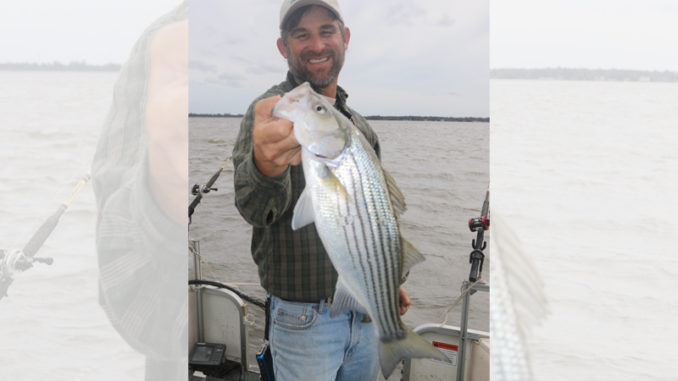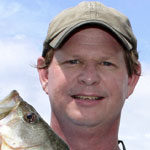
Coastal waters managed by NCMFC will have no-possession limit
N.C. Division of Marine Fisheries Director Steve Murphey issued proclamations today that implement striped bass management measures in the Central Southern Management Area. The Central Southern Management Area encompasses all internal waters from just south of Oregon Inlet to the South Carolina line. The waters impacted include, but are not limited to, the Pamlico and Core sounds and the Tar, Pamlico, Pungo, Bay, Neuse and White Oak rivers and their tributaries.
Beginning Monday, the below management measures will be in place for the Central Southern Management Area.
- Recreational Fishing
- A recreational no-possession limit, essentially a year-round recreational season closure, for striped bass will take effect in coastal fishing waters managed by the N.C. Marine Fisheries Commission.
- The recreational season will remain open in joint fishing waters managed cooperatively between the N.C. Marine Fisheries Commission and the N.C. Wildlife Resources Commission, until April 30 with the following size and bag limits:
- 18-inch total length minimum size limit
- No possession of fish between 22 inches and 27 inches total length
- Two-fish per person, per day bag limit
- The year-round recreational closed season in the Cape Fear River and its tributaries remains in place.
- Recreational catch-and-release of striped bass is still allowed in the coastal fishing waters. Recreational fishermen are encouraged to reduce catch-and-release discard mortality. Through use of non-offset circle hooks and limited handling of released fish (watch a short video on catch-and-release best practices).
Additionally, recreational fishermen are reminded that recreational fishing mortality increases significantly when water temperatures are warm.
Commercial Fishing and Recreational Commercial Gear License Fishing
- A no possession limit in coastal fishing waters and in joint fishing waters. The commercial striped bass season in these waters, currently closed, will not open.
- A year-round 36-inch tie-down and 50-yard distance from shore requirement will take effect for gill nets in the western Pamlico Sound. This includes the Tar-Pamlico and Neuse rivers and their tributaries. (This is already required when the commercial striped bass season is closed).
- The year-round commercial closed season in the Cape Fear River and its tributaries remains in place.
Maps delineating coastal and joint waters for these areas can be found here. For more specifics on the striped bass management changes in the Central Southern Management Area, including GIS coordinates and maps, see proclamations FF-4-2019 and M-5-2019.
Striped bass fishing remains open in some rivers
The closure does not impact striped bass fishing in the Atlantic Ocean, Albemarle Sound Management Area, Roanoke River Management Area, and inland waters under the sole jurisdiction of the N.C. Wildlife Resource Commission.
The regulatory changes partially implement Supplement A to Amendment 1 to the N. C. Estuarine Striped Bass Fishery Management Plan. This plan was adopted by the Marine Fisheries Commission in February. The approved supplement contained a no possession measure for striped bass in both coastal and joint waters of the Central Southern Management Area to be implemented for both commercial and recreational fisheries.
However, the Division of Marine Fisheries has delayed implementation of the no-possession measure for the recreational fishery in joint waters because the N.C. Wildlife Resources Commission has not adopted equivalent management measures in these waters.
The new management measures are meant to be temporary restrictions to protect naturally-spawned year classes of striped bass until Amendment 2 to the N. C. Estuarine Striped Bass Fishery Management Plan is adopted. Amendment 2 could continue the no-possession provision or recommend other management actions.
Research has shown that striped bass in the Central Southern Management Area are not a self-sustaining population and that fishermen are mainly catching hatchery-raised fish; however, data suggest there have been two recent naturally-spawned year classes. The no-possession management measure offers additional protection for those non-hatchery fish and for larger females which could increase natural spawning stock biomass.

